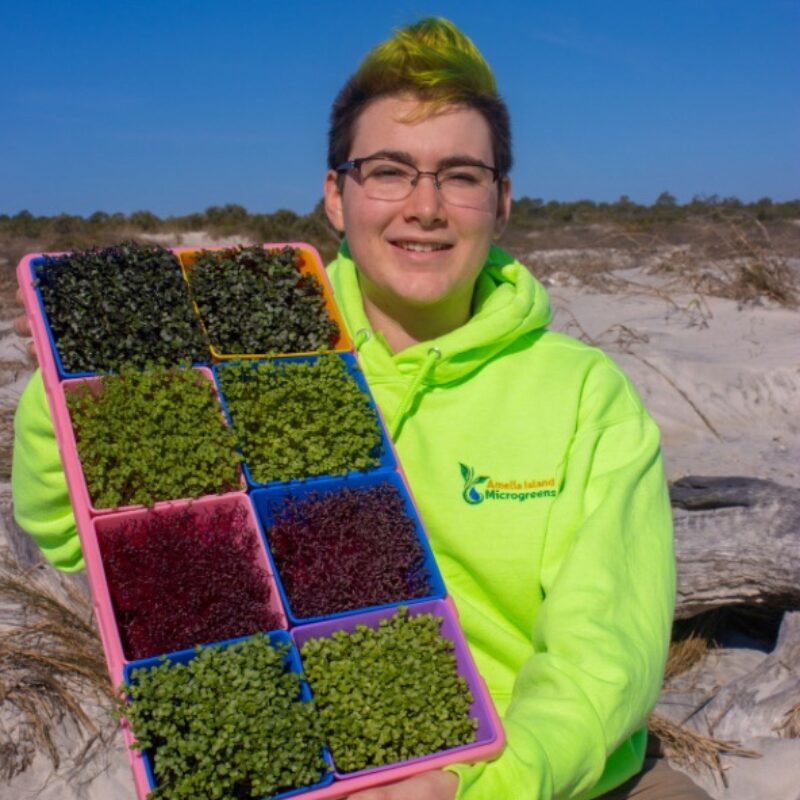

We recently had the chance to connect with Connor Hiebel and have shared our conversation below.
Hi Connor, thank you so much for taking time out of your busy day to share your story, experiences and insights with our readers. Let’s jump right in with an interesting one: What is something outside of work that is bringing you joy lately?
One of the most joyful parts of my day is my 20-minute walk in the morning. In fact, my daily walk reminder just popped up on my phone! It’s become a sacred part of my routine where I intentionally disconnect from work and reconnect with the present moment. Sometimes it’s a meditative walk, sometimes I put on high-energy music, and often I listen to an audiobook. Right now, I’m diving into The Infinite Game by Simon Sinek, it’s incredibly powerful. The book explores how many businesses operate with a finite mindset, think win/lose, which can lead to burnout and short-term thinking. But when we shift to an infinite mindset, where the goal is to serve humanity and create long-term impact, everything changes. It’s a perspective that resonates deeply, not just in business but in life. Walking, reflecting, and learning like this has become my daily wellness ritual, it nourishes both my body and my mind.
Can you briefly introduce yourself and share what makes you or your brand unique?
What if the food on your plate could be the very thing that heals you? For me, it wasn’t just a ‘what if’ it was my reality at seven years old when microgreens helped me recover from debilitating pain.
Hi, I’m Connor Hiebel, bestselling author of Let’s Get Growing and founder of Island Microgreens. My mission is simple yet powerful: to empower you to grow your own health. I launched this company at just 14 years old, during the uncertainty of COVID, when empty shelves reminded us how fragile our food system really is. What began as a response to a global crisis has grown into a movement, helping people everywhere reclaim food security, confidence, and wellness right from their own homes.
Growing microgreens was born from a deeply personal health journey. At seven years old, I experienced intense chronic pain that conventional medicine couldn’t resolve. My family turned to healing through food, and that’s when I discovered the power of microgreens. These tiny plants played a huge role in my recovery, and I’ve been growing them ever since.
Fast forward to 2020, during the pandemic, I saw how fragile our food systems really are. That moment sparked a bigger mission: to help others reclaim their health and food independence. Today, Island Microgreens empowers people to grow their own nutrient-packed greens at home, no matter their space, experience, or income. Our kits are organic, easy to use, and harvested in just seven days. We’re about to launch our foundation: Let’s Get Growing Youth Foundation to empower our next generations to grow their own food, with a focus on schools in food deserts.
More than a business, we’re building a movement focused on wellness, sustainability, and self-sufficiency. Whether you live in a high-rise, tiny house, RV or boat you can grow fresh, healing food and I’m here to help make that possible.
Amazing, so let’s take a moment to go back in time. What’s a moment that really shaped how you see the world?
When I was seven years old, my world shifted overnight. I went from being a wide-eyed, curious child who loved school to a withdrawn, isolated kid on medical homebound. The hardest part wasn’t just the pain I was experiencing, it was the judgment. My teachers didn’t believe I was truly sick, and the whispers and accusations that I was just ‘faking it to get out of class’ were humiliating. Imagine adoring school, craving connection, but being treated as though your suffering was a lie. That kind of shame cuts deep.
Doctors could see I was sick, but they couldn’t figure out why. My body was inflamed far beyond what a child should endure. Words like cancer and multiple sclerosis were being tossed around in hushed conversations. It was terrifying. That’s when my parents knew we had to take a different path- fast. They brought me to a functional medicine doctor, who put me on a strict gut-healing diet. That’s when I first embraced the phrase ‘let food be thy medicine’ and began growing microgreens.
The change was nothing short of miraculous. Within eight months, my health turned around, my energy came back, and I was able to return to school. Walking back into that classroom wasn’t just about academics, it was about reclaiming a piece of my life I thought I had lost forever.
Looking back, I would never wish to relive that season of suffering. Yet, it gave me lessons even the best schools couldn’t teach. It taught me empathy, because you never truly know the battles someone else is fighting. It taught me gratitude, because every single moment is a gift, and tomorrow is never promised. And most of all, it taught me fearlessness. When you’ve stared down the possibility of death and made it to the other side, life takes on a new urgency. You realize that yes, life is short, but it’s also extraordinary. So when I face challenges today, I remind myself: This might be scary, but I’m alive. And being alive means I still have the chance to create, to serve, and to make an impact. That’s a perspective no fear can ever take away. What began as my deepest struggle became the seed that grew into a movement, helping thousands reclaim their health through fresh, living produce.
The quote ‘With every challenge comes the seed of equal or greater opportunity’ has guided me for years. But here’s the thing: you’re only given the seed, not the plant. For that seed to grow into something strong and life-giving, you have to nurture it, water it, and care for it. Life constantly hands us seeds, thousands of them. The real question is: which ones will you choose to cultivate, and which ones will you step on?
Was there ever a time you almost gave up?
To be completely real, there were thousands of moments I thought about giving up when I first started Island Microgreens. The secret wasn’t that I never struggled, it’s that I learned how to take that intensity and fuel myself forward instead of letting it tear me down. Those experiences of pushing through what felt insurmountable became the inspiration for my upcoming book, The 4% Edge, where I lay out the formula I used to overcome life’s toughest moments.
When I first launched my business, I could barely hold a one-minute phone conversation with a friend, let alone stand in front of strangers at a vendor fair. Those early fairs were brutal. I would freeze, break into panic attacks, and once even though I’m not even a crier I ended up sobbing at my own booth. Running a booth is challenging for anyone, but for someone who was deeply socially anxious, it felt overwhelming.
And yet, something magical began to happen around my 11th vendor fair. I wasn’t suddenly confident it was more like jumping into freezing cold water. At first, your body is in shock, but then, slowly, it begins to adapt. My comfort zone was stretching, one painful fair at a time.
Once I got comfortable with vendor fairs, a new challenge emerged: YouTube. The truth is, most people don’t even know what microgreens are. I saw two ways to change that: either I could try talking to every single person on the planet, which, if you do the math, would take longer than a human lifespan or I could create videos that anyone, anywhere, could watch.
But talking to a camera turned out to be even harder than talking to a person. It took me an entire year to film just ten videos. I would literally record one sentence, pause, gather myself, then record the next. There were so many times I almost quit. But I didn’t. I persisted. And the funny thing is, persistence compounds. Just like the saying, ‘You can get more done in a day than a year,’ I now film nine videos in a single day, without the stress that used to paralyze me.
That’s the power of leaning into discomfort. Every fear, every setback, every panic attack became the training ground for resilience. And that resilience is what I now teach others: that no matter how overwhelming it feels, you are capable of so much more than you believe if you just keep going 4% further than you think you can.
Alright, so if you are open to it, let’s explore some philosophical questions that touch on your values and worldview. What important truth do very few people agree with you on?
The important truth I believe — and very few people agreed with me on at first — is that growing your own food is not only possible in modern life, but essential. Most people think that healthy eating means buying more expensive produce at the grocery store, but the reality is that by the time that food gets to your plate, it’s often been shipped thousands of miles, stored for weeks, and has lost much of its vitality. What I discovered is that something as small and simple as a tray of microgreens, grown right on your counter in just seven days, can deliver more nutrition and freshness than a cart full of tired vegetables.
When I started Island Microgreens at 14, people thought I was chasing a fad or playing with a hobby that couldn’t make a real impact. But I knew from personal experience that these tiny greens could change lives. I had my own health struggles and saw firsthand how food could either drain me or energize me. Microgreens gave me back energy, confidence, and even purpose and I wanted to share that with others. Since then, I’ve watched thousands of families, schools, and even pet owners transform simply by realizing they could grow something themselves. That one small action planting a seed, tending to it, and harvesting it within a week doesn’t just provide food. It changes how people see themselves and what they’re capable of.
This truth matters to me because it’s about more than farming or nutrition. It’s about reclaiming independence in a world where we’re told convenience is the only option. Growing your own food, even in the smallest way, reconnects you to something essential: the idea that you have the power to shape your own health and future. That’s not a gimmick, and it’s not a passing trend. It’s a shift in mindset that I believe the world desperately needs, and it’s why I’ve dedicated my life and work to helping people take that first step. Growing food at home isn’t just a hobby, it’s a movement.
Before we go, we’d love to hear your thoughts on some longer-run, legacy type questions. What are you doing today that won’t pay off for 7–10 years?
Right now, I’m building more than a business I’m building a movement. What I’m doing today that won’t fully pay off for 7–10 years is laying the foundation for people to grow their own health anywhere. That means creating microgreen kits that are sustainable, building a community around food independence, and showing families and schools that fresh food doesn’t have to come from a store shelf.
The truth is, this work isn’t about a single harvest. It’s about changing habits, shifting mindsets, and proving that even the smallest seed can spark confidence, health, and independence. Ten years from now, I don’t just want to see more people eating microgreens I want to see a culture where growing your own food is normal, where classrooms use trays to teach kids about life and health, and where communities rely less on fragile supply chains and more on themselves.
That kind of vision doesn’t pay off overnight. It requires patience, resilience, and a willingness to invest in something bigger than quick wins. I often remind myself I’m not just playing for the short-term scoreboard. I’m playing the infinite game. And in that game, the real victory is leaving behind a system that empowers generations to come.
Contact Info:
- Website: https://ameliaislandmicrogreens.com
- Instagram: https://www.instagram.com/ameliaislandmicrogreens
- Linkedin: https://www.linkedin.com/in/connorhiebel
- Facebook: https://www.facebook.com/AmeliaIslandMicrogreens
- Youtube: https://www.youtube.com/@ameliaislandmicrogreens
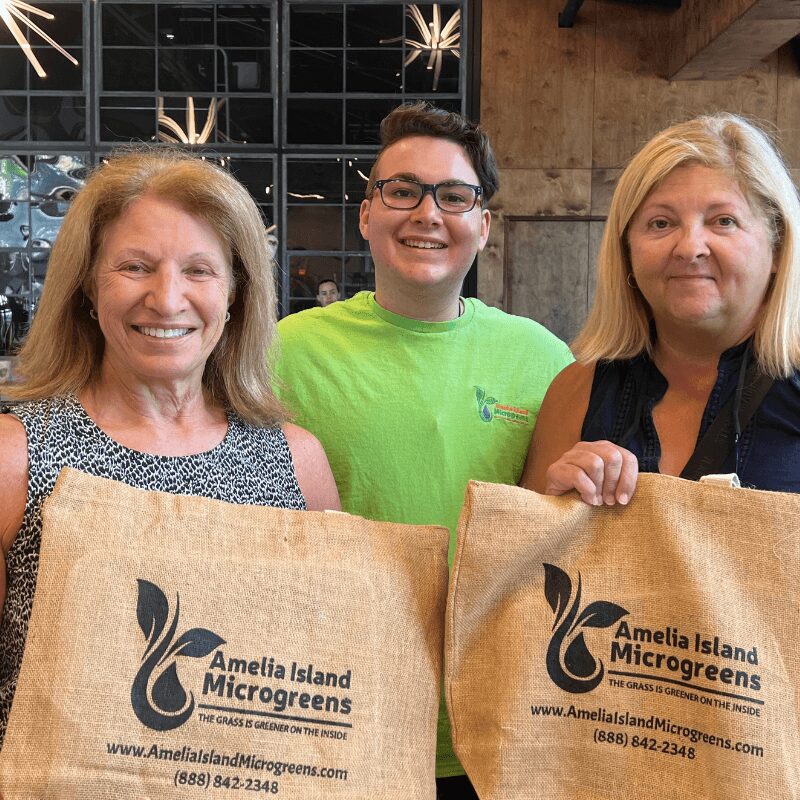
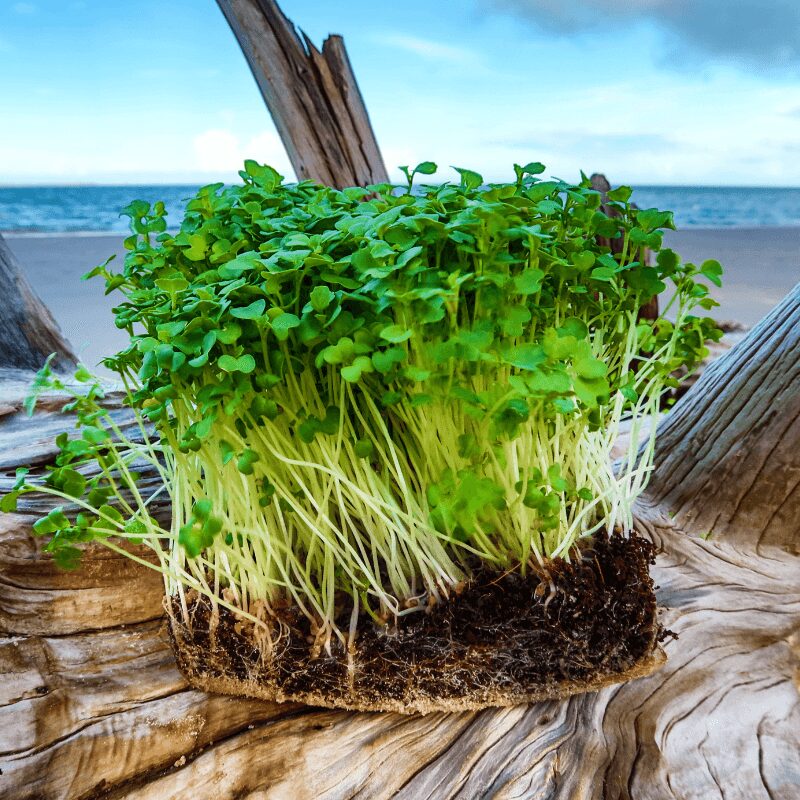
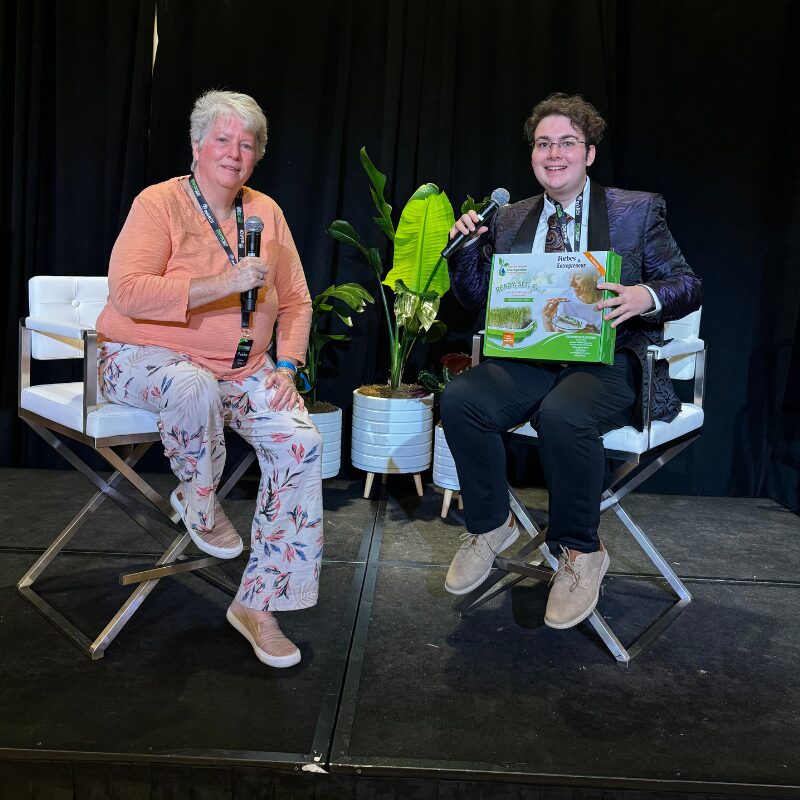
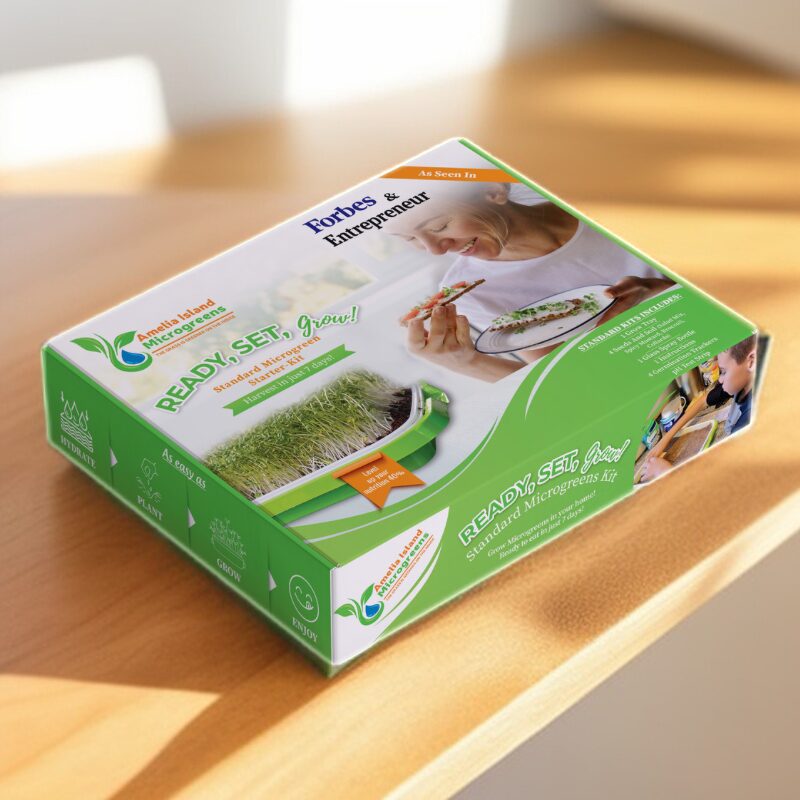
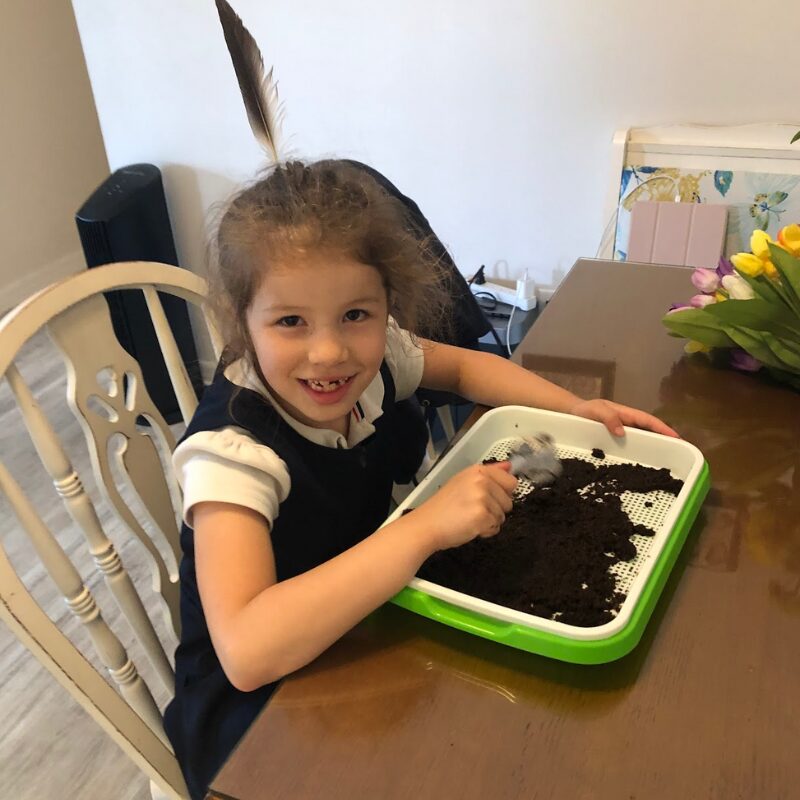
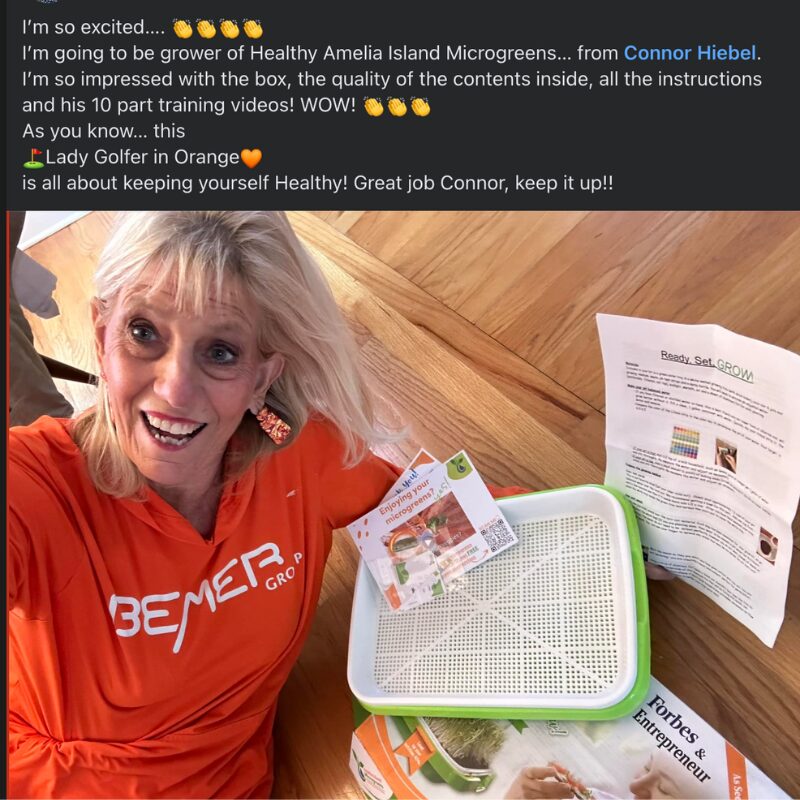
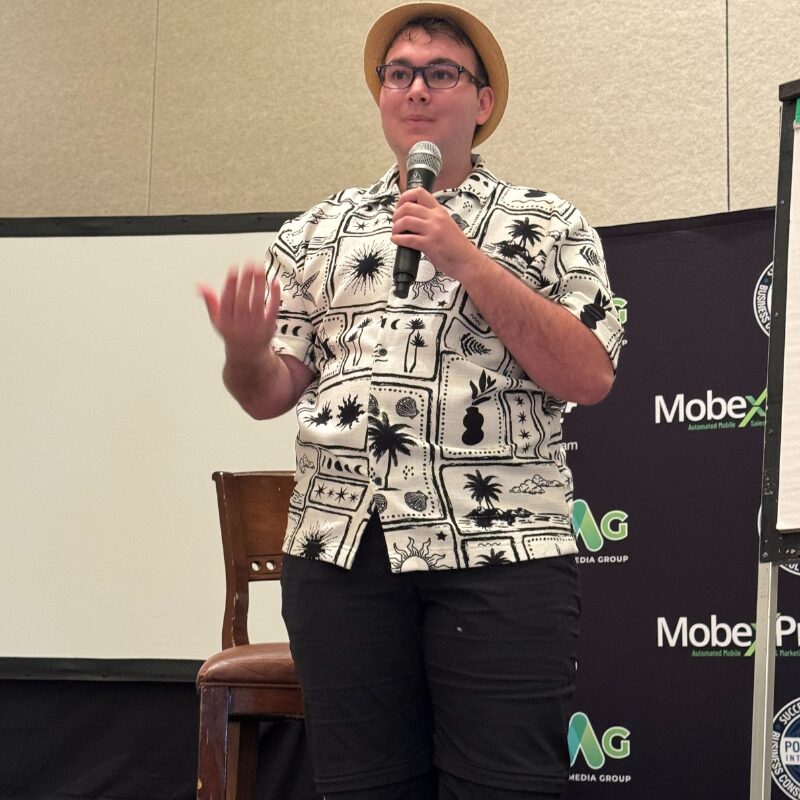
Image Credits
Scott Moore











